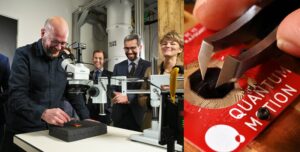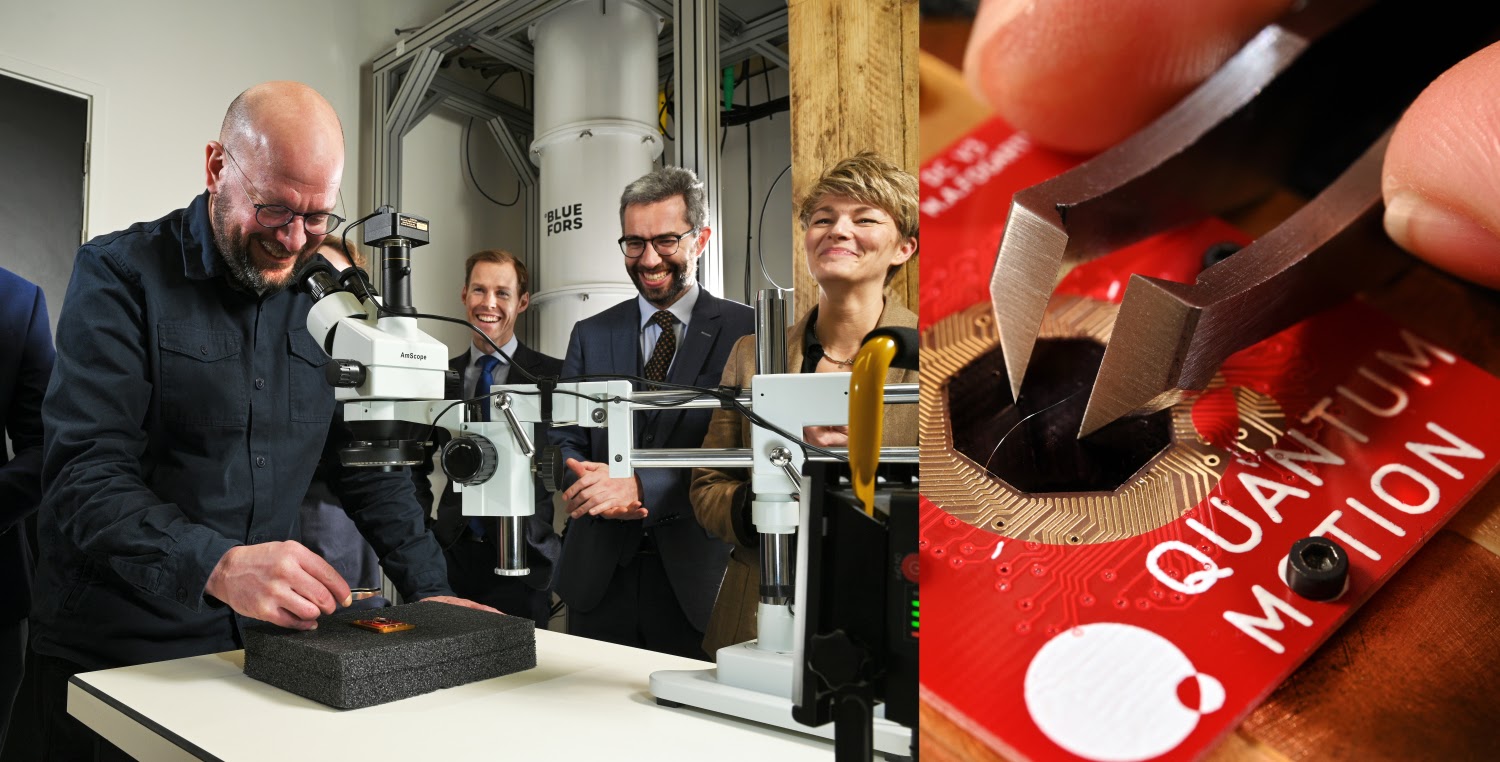
PRESS RELEASE — Quantum Motion, a UK-based quantum computing spinout led by academics from UCL and Oxford University, is leading a wave of technology and science innovation by opening the largest independent quantum computing lab in the UK. The London lab will conduct practical experiments in temperatures 100 times colder than deep space to develop technology to build the world’s most powerful computers.
The lab is a multi-million pound investment, backed by funding from the UK government and venture capital and hosts a team of highly specialised scientists and engineers working together to make quantum computing a reality to answer questions that are still impossible for today’s computers. It is unique in terms of location, combination of specialist skills and equipment, including several specially configured dilution refrigerators – which cool the quantum chips to near absolute zero (minus 273 degrees Celsius) – making it the most substantial low-temperature facility of any UK quantum company to date.
Based in Islington, north London, the facility will employ 25 full time staff, including quantum theorists, physicists and Integrated Circuit (IC) engineers. This combination of different skills is needed to realise the vision of truly scalable quantum computers based on silicon chips.
“Islington is officially now the coolest part of London,” said James Palles-Dimmock, COO of Quantum Motion. “We’re working with technology that is colder than deep space and pushing the boundaries of our knowledge to turn quantum theory into reality. Our approach is to take the building blocks of computing – the silicon chip – and demonstrate that it is the most stable, reliable and scalable way of mass manufacturing quantum silicon chips. We’ve built up a talented team, made major industry breakthroughs and now we’re leading the charge of quantum start-up companies in the UK by opening our own independent lab.”

A quantum computer harnesses some of the deepest laws of physics, normally seen only at the atomic and subatomic level, giving it unique powers to model the natural world. Quantum computers could be more powerful than today’s super computers and capable of performing complex calculations that are otherwise practically impossible, quickly finding new materials, drug discovery or optimising complex processes that can help tackle climate change. The industry has so far managed to create computers with upwards of 100 qubits (quantum bits), but this is orders of magnitude away from the millions of qubits that are needed.
“Quantum bits really change the way a computer is able to think,” said Simon Benjamin, co-founder of Quantum Motion and professor of quantum technologies at Oxford University. “Problems that would take a supercomputer thousands of years to crack could be solved by a quantum computer in minutes. Our goal is for quantum computers to be accessible to everyone and that means making it faster and cheaper to manufacture the millions of quantum bits that we need to build into end-devices.”
The lab was officially opened by Theo Blackwell MBE, Chief Digital Officer for London on behalf of the Mayor of London. He said, “The Quantum Motion Lab is a great example of world-leading talent, investment and advanced technology coming into London and the UK. Quantum computing represents one of the most exciting emerging technologies we are seeing in our city. In the future, we hope that the power of quantum computing will be able to solve problems faced by people across this city and elsewhere, such as looking for solutions to pollution and air quality, to transport congestion and beyond.”
Quantum Motion was founded in 2017 and has raised almost £20m in equity and grant funding, with venture backing from INKEF, IP Group, NSSIF, Octopus Ventures, Oxford Sciences Enterprises and Parkwalk Advisors. The company develops the design and architecture of qubits based on industrial silicon chip manufacturing. Its vision is to use this manufacturing process to produce quantum processors fully integrated with conventional electronics, with high yield and low cost in order to dramatically widen access to quantum computing. In 2021, the Quantum Motion team made a breakthrough discovery that proved quantum computers could be built using standard silicon chips, like those found in any smartphone or computer.
For more market insights, check out our latest quantum computing news here.













